Related Research Articles

George Thomas "Mickey" Leland III was an anti-poverty activist who later became a congressman from the Texas 18th District and chair of the Congressional Black Caucus. He was a Democrat.

Adam Clayton Powell Jr. was an American Baptist pastor and politician who represented the Harlem neighborhood of New York City in the United States House of Representatives from 1945 until 1971. He was the first African American to be elected to Congress from New York, as well as the first from any state in the Northeast. Re-elected for nearly three decades, Powell became a powerful national politician of the Democratic Party, and served as a national spokesman on civil rights and social issues. He also urged United States presidents to support emerging nations in Africa and Asia as they gained independence after colonialism.
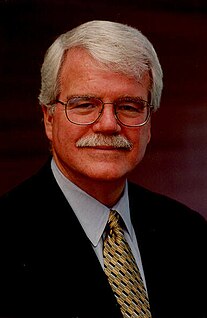
George Miller III is an American politician who served as a U.S. representative from California from 1975 to 2015. A member of the Democratic Party, he represented the state's 7th congressional district until redistricting in 2013 and 11th congressional district until his retirement. Miller served as Chairman of the House Natural Resources Committee from 1991 to 1995 and Chairman of the House Education and Labor Committee from 2007 until 2011.
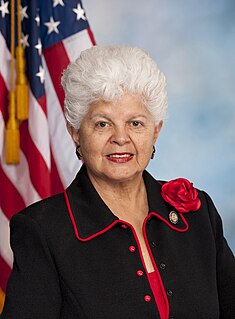
Graciela Flores "Grace" Napolitano is an American Democratic Party politician who has represented California's San Gabriel Valley and other parts of Los Angeles County in the United States House of Representatives since 1999. Her district is currently numbered California's 32nd district. She previously served in the California State Assembly and the Norwalk City Council.

Nancy Elizabeth Lee Johnson is an American lobbyist and politician from the state of Connecticut. Johnson was a Republican member of the United States House of Representatives from 1983 to 2007, representing the 6th district and later the 5th District after reapportionment.

Jefferson Bingham Miller is an American politician who served as the U.S. representative for Florida's 1st congressional district from 2001 to 2017. A member of the Republican Party, his district included all of Escambia County, Santa Rosa County, Okaloosa County, Walton County, Holmes County and Washington County.

The Committee on Ways and Means is the chief tax-writing committee of the United States House of Representatives. The committee has jurisdiction over all taxation, tariffs, and other revenue-raising measures, as well as a number of other programs including Social Security, unemployment benefits, Medicare, the enforcement of child support laws, Temporary Assistance for Needy Families, foster care, and adoption programs. Members of the Ways and Means Committee are not allowed to serve on any other House Committee unless they are granted a waiver from their party's congressional leadership. It has long been regarded as the most prestigious committee of the House of Representatives.
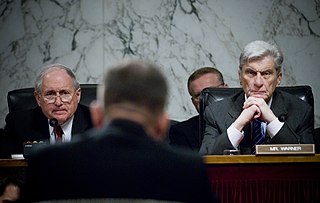
A congressional committee is a legislative sub-organization in the United States Congress that handles a specific duty. Committee membership enables members to develop specialized knowledge of the matters under their jurisdiction. As "little legislatures", the committees monitor ongoing governmental operations, identify issues suitable for legislative review, gather and evaluate information, and recommend courses of action to their parent body. Woodrow Wilson once wrote, "it is not far from the truth to say that Congress in session is Congress on public exhibition, whilst Congress in its committee rooms is Congress at work." It is not expected that a member of Congress be an expert on all matters and subject areas that come before Congress. Congressional committees provide valuable informational services to Congress by investigating and reporting about specialized subjects.
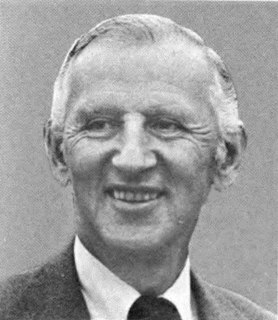
Sidney Richard Yates was an American politician from the state of Illinois. A native of Chicago, he graduated from Lake View High School in 1928. He received bachelor's (1931) and law (1933) degrees from the University of Chicago, was admitted to the bar, and practiced law in Chicago. In addition to working as an attorney, Yates also played semiprofessional basketball in the 1930s. He gained his initial experience in government as an attorney for the state bank receiver (1935-1937), and an assistant state attorney general specializing in traction railroads for the Illinois Commerce Commission (1937-1940). During World War II, Yates served in the United States Navy for two years (1944-1946) as an attorney based in Washington, D.C.

Alan Dupree Wheat is an American politician from the state of Missouri.

James Thomas Walsh is an American Republican politician from Syracuse, New York. Currently a government affairs counselor for K & L Gates in Washington, DC, Walsh retired from the United States House of Representatives in 2009 after serving for twenty years. Walsh represented a portion of Central New York, that is now known as the state's 24th Congressional District.

The Committee on Oversight and Reform is the main investigative committee of the United States House of Representatives.
The United States Children's Bureau is a federal agency organized under the United States Department of Health and Human Services' Administration for Children and Families. Today, the bureau's operations involve improving child abuse prevention, foster care, and adoption. Historically, its work was much broader, as shown by the 1912 act which created and funded it:
The said bureau shall investigate and report to [the Department of Commerce and Labor] upon all matters pertaining to the welfare of children and child life among all classes of our people, and shall especially investigate the questions of infant mortality, the birth-rate, orphanage, juvenile courts, desertion, dangerous occupations, accidents and diseases of children, employment, legislation affecting children in the several states and territories.
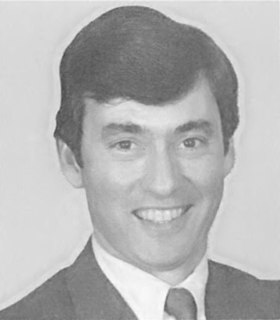
Thomas Joseph Downey is an American attorney, lobbyist and former politician who served as a U.S. Representative for New York's 2nd congressional district from 1975 to 1993.

Matthew Francis "Matt" McHugh is a former Democratic member of the United States House of Representatives from New York.

Beryl Franklin Anthony Jr. is an American lawyer and former politician who represented Arkansas in the United States House of Representatives.

Jerry Mumford Patterson is an American lawyer in California and the District of Columbia, educator and politician, who was a five-term United States Representative from California, serving from 1975 to 1985.

The Foster Care Independence Act of 1999 aims to assist youth aging out of foster care in the United States in obtaining and maintaining independent living skills. Youth aging out of foster care, or transitioning out of the formal foster care system, are one of the most vulnerable and disadvantaged populations. As youth age out of the foster care system at age 18, they are expected to become self-sufficient immediately, even though on average youth in the United States are not expected to reach self-sufficiency until age 26.

David Lee Camp is a former American politician who served as a member of the United States House of Representatives from 1991 to 2015. Camp represented Michigan's 4th congressional district since 1993, and previously served one term representing Michigan's 10th congressional district. A member of the Republican Party, Camp was chairman of the House Committee on Ways and Means, serving from 2011–2015. In March 2014, he announced that he would not run for re-election.

The Preventing Sex Trafficking and Improving Opportunities for Youth in Foster Care Act is a bill introduced in the 113th Congress. The bill would require states to take action to address the problem of sex trafficking of foster care children.
References
- 1 2 3 4 5 6 7 8 9 10 11 12 13 14 15 16 17 18 19 Children, youth, and families: Beginning the assessment. Hearing before the Select Committee on Children, Youth, and Families; House of Representatives, Ninety-Eighth Congress, First Session [ permanent dead link ], United States House of Representatives, Washington, DC, 28 April 1984, Original document retrieved 19 January 2014 from ERIC at Ed.gov: Institution of Education Sciences.
- ↑ Children, youth, and families: Beginning the assessment. Hearing before the Select Committee on Children, Youth, and Families; House of Representatives, Ninety-Eighth Congress, First Session, United States House of Representatives, Washington, DC, 28 April 1984, Retrieved 19 January 2014 from ERIC at Ed.gov: Institution of Education Sciences.
- 1 2 3 4 5 6 7 Report on the activities for the year 1991 of the Select Committee on Children, Youth, and Families; House of Representatives, 102d Congress, First Session, United States House of Representatives, Washington, DC, 1992, Retrieved 19 January 2014 from ERIC at Ed.gov: Institution of Education Sciences.
- 1 2 3 4 National Library of Australia: Catalogue, National Library of Australia, Australia, Retrieved 19 January 2014.
- 1 2 3 4 5 6 7 8 9 Hearing before the Select Committee on Children, Youth and Families; House of Representatives, One Hundredth Congress, First Edition; Continuing crisis in foster care: Issues and problems, United States House of Representatives, Washington, DC, 22 April 1987, Retrieved from LiftingtheVeil.org, 19 January 2014.